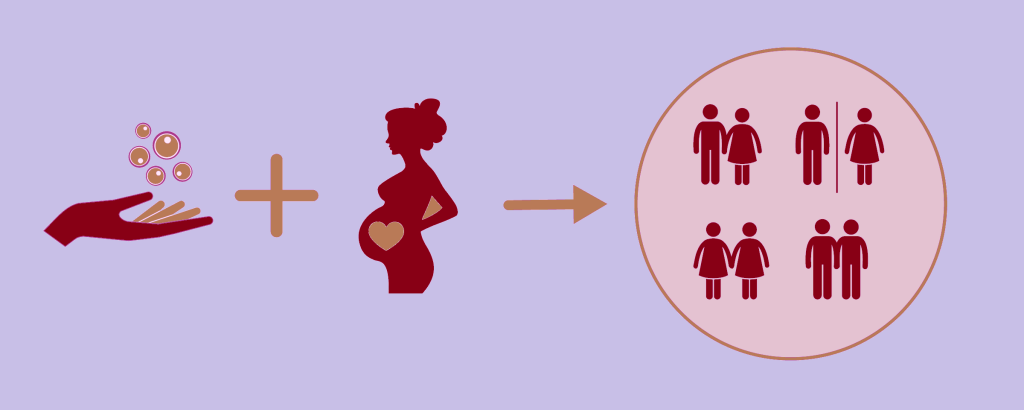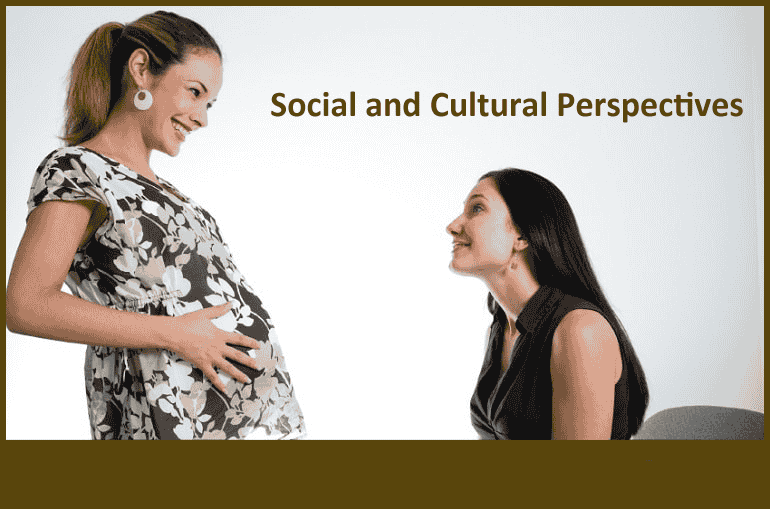Are you looking forward to pursuing surrogacy in Kenya, yet have not decided on whether it will be a good idea or not? Well, let us make it easier and simpler for you. Surrogacy has emerged as a godsend for millions of infertile couples and individuals around the world seeking parenthood. Although the idea is still somewhat fresh in Kenya, its influence on families is increasing and social and cultural viewpoints on it are changing.
Moreover, many people find it against conventional wisdom to have a child via surrogacy; it also presents a special opportunity for family development and support. Let’s examine closely how surrogacy is changing Kenyan families and the reasons behind its generally favourable reception.
The Impact of Surrogacy on Kenyan Families
Surrogacy turning into a favourable family-building choice for everyone in Kenya
Though carefully, surrogacy is becoming a choice that many people in a world where family defines both identity and social level are investigating. Historically, having children in Kenya has been considered a normal aspect of marriage; big families are sometimes interpreted as evidence of wealth and prosperity. However many Kenyan couples are finding they cannot conceive naturally as situations change and infertility rates climb.

Here is where surrogacy becomes a workable solution. For people who have tried every other choice—including IVF or adoption—surrogacy offers a chance to have a biological child. More Kenyans, particularly as modern medicine is more proficient and accessible, are beginning to accept it even if it may question conventional wisdom.
Social Acceptance of Surrogacy: Surely, slowly but definitely
Kenyan acceptance of surrogacy has not happened overnight. Family lineage and blood connections are highly valued in Kenyan society, hence the concept of someone else bearing a kid for you at first appears strange and even unsettling. The idea still generates mistrust in more rural and conventional environments. People typically depend on their cultural and religious views, which sometimes stress natural conception as the ideal approach to establishing a family.
Still, things are changing around quite fast. People’s perspective on surrogacy changes in metropolitan places like Nairobi. Kenyans are becoming more open-minded as knowledge of information, education, and medical services become easier to access. Moreover, surrogacy is becoming less forbidden in conversations, and the stigma associated with infertility is beginning to relax. Younger generations, more exposed to global trends and contemporary methods of family-building, notably reflect this.
This change depends much on the help of friends, families, and the larger society. Many Kenyans who choose surrogacy find that the support is rather strong once people know the medical grounds behind their decision. Although instances of opposition exist, generally society is becoming more and more accepting of surrogacy.
Surrogacy and Kenyan Culture: Juggling Modernism with Custom
Kenya is a nation with great cultural diversity, and customs around family life have strong roots. Many Kenyan families cherish big extended families, in which children are seen as benefits to the whole society rather than only to their parents. In some respects, surrogacy fits quite nicely with this community approach to family. When the surrogate is known to the family—perhaps a relative or close friend—there is group support and involvement in parenthood.

It is not often simple, though, to balance these conventional beliefs with the more contemporary surrogacy approach. The idea of motherhood is among the toughest cultural obstacles there is. Many Kenyan societies regard the woman carrying the kid as the mother automatically. Given the surrogate carries the kid on behalf of the intending parents, surrogacy questions this concept. That said, navigating cultural expectations can be challenging in circumstances whereby the intended parents and the surrogate come from the same cultural background.
Notwithstanding these obstacles, surrogacy gives Kenyan families a chance to combine modernism with legacy. Many families are discovering methods to respect their cultural norms while nevertheless welcoming surrogacy as a legitimate and transforming choice for expanding their families.
The Role of Religion: Negotiating Moral Concerns
Kenyan society is fundamentally religious, and this influences choices on family and reproduction as well. Most Kenyans either practice Christianity or Islam, and both faiths have different opinions on surrogacy. Religious leaders sometimes have conflicting views; some see surrogacy as a gift of modern medicine while others consider it as unnatural.
Still, many Kenyans find great strength in their faith throughout their surrogacy process. For some, surrogacy is considered as the answer to prayers—a means to realise their desire for parenthood following years of infertility. With some offering counselling services to assist families in negotiating the moral and emotional implications of surrogacy, religious institutions have also become more sympathetic.
A Change in Gender Roles
The way surrogacy is redefining conventional gender roles has one unexpected impact on Kenyan households. Surrogacy provides a substitute in a society where women are expected to bear children as part of their marriage obligations. It questions society’s expectations placed on women’s bodies by letting women who might not be able to conceive nevertheless become moms.
Men in Kenyan society have always been considered as providers; women play the caretaker role. On the other hand, surrogacy promotes a more cooperative method of family-building whereby both couples actively participate in the decision-making process. Helping to redefine modern Kenyan parenthood, many Kenyan men are now actively studying, planning, and supporting their partners through surrogacy.
The Advantage for The Future Child
In the end, the child born via surrogacy gains the most from this contemporary method of family-building. Surrogacy lets families who might not have had the chance to experience motherhood have biological children. The delight of raising a kid transcends whatever social or cultural obstacle these families could encounter along the road.
Children born via surrogacy also typically receive affection and acceptance. Regardless of how they got into the world, once a child is born in Kenyan culture, they are considered a blessing. Families swarm around them providing support, direction, and care. The emphasis moves from the conception of the kid to their upbringing inside the family.
Final words
While it poses certain challenges in terms of custom and culture, surrogacy is changing the way families are building in Kenya and has an overall very good effect. More Kenyans are choosing surrogacy, and they are discovering fresh approaches to reconcile contemporary health with their social and cultural norms. Families who earlier felt they might never have children of their own are finding hope in the growing acceptability of surrogacy.
Families are adjusting and enjoying this new route to motherhood as the discussion over surrogacy in Kenya develops. Many more Kenyan families could have their lives changed in the years to come with ongoing education, awareness, and support for surrogacy.



No Comments